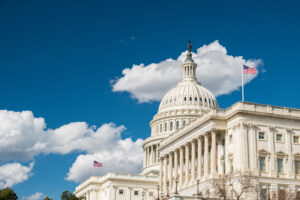A federal judge in Little Rock, Arkansas has ordered drugmaker Wyeth to turn over thousands of pages indicating that it paid "ghostwriters" to author and place studies about one of its profitable drugs, Prempro. The Chicago Tribune recently reported that:
A federal judge has ordered the unsealing of thousands of pages of documents pertaining to the ghostwriting practices of Wyeth Pharmaceuticals, which is being sued over hormone replacement drugs.
U.S. District Judge Bill Wilson ordered the papers unsealed Friday at the request of a medical journal and The New York Times. Plaintiffs attorneys presented the papers earlier at trial to show Wyeth routinely hired medical-writing firms to ghostwrite articles that appeared in seemingly objective medical journals but included only the name of a scientific researcher as the author.
This is a truly disturbing practice that has gained the attention of at least one U.S. Senator:
The New Jersey drugmaker already had turned over the documents, which it says concern about 40 articles in medical journals and other publications, to Sen. Charles Grassley, R-Iowa. Grassley sought them last year without a subpoena as part of a congressional investigation into drug-industry influence on doctors.
This is a true victory for consumers and was achieved in part by Public Justice, America’s public interest law firm. (I recently blogged about Public Justice here.) The Tribune wrote that:
On June 11, a biomedical journal, PLoS, published by the Public Library of Science, filed a motion to intervene in the Prempro litigation. PLoS, represented by a public-interest law firm, Public Justice, wanted to set aside the confidential designation that had been placed on the documents before a series of trials began in 2006. The documents were shown to jurors at trial but were otherwise unavailable publicly.
Public Justice has said that they became involved because these practices are at odds with public health and safety:
"We are thrilled by the Court’s decision to stop Wyeth’s attempt to hide evidence of its ghostwriting,” said Amy Radon, Public Justice’s lead attorney for PLoS Medicine. "Public health and safety is put at serious risk when a drug company fails to reveal its role in authoring a medical journal article touting its own product."
The federal judge ruling on the matter found that there was no good cause for keeping the documents under seal:
In his July 24 ruling, U.S. District Court Judge Bill Wilson, Jr., held that there was no good cause for secrecy and ordered that the documents be made publicly available as of 5:00 p.m. on Friday, July 31.
In fact,
“Wyeth did not even attempt to show good cause for keeping these documents secret," said Morgan "Chip" Welch of Arkansas’ Welch and Kitchens, LLC. “Judge Wilson’s decision will undoubtedly save lives."
A copy of Judge Wilson’s order can be read here.
@thumbnail.jpg)
Both an Emory School of Law graduate and MBA graduate of Goizueta Business School at Emory, Chris Nace focuses his practice on areas of medical malpractice, drug and product liability, motor vehicle accidents, wrongful death, employment discrimination and other negligence and personal injury matters.










Comments for this article are closed.